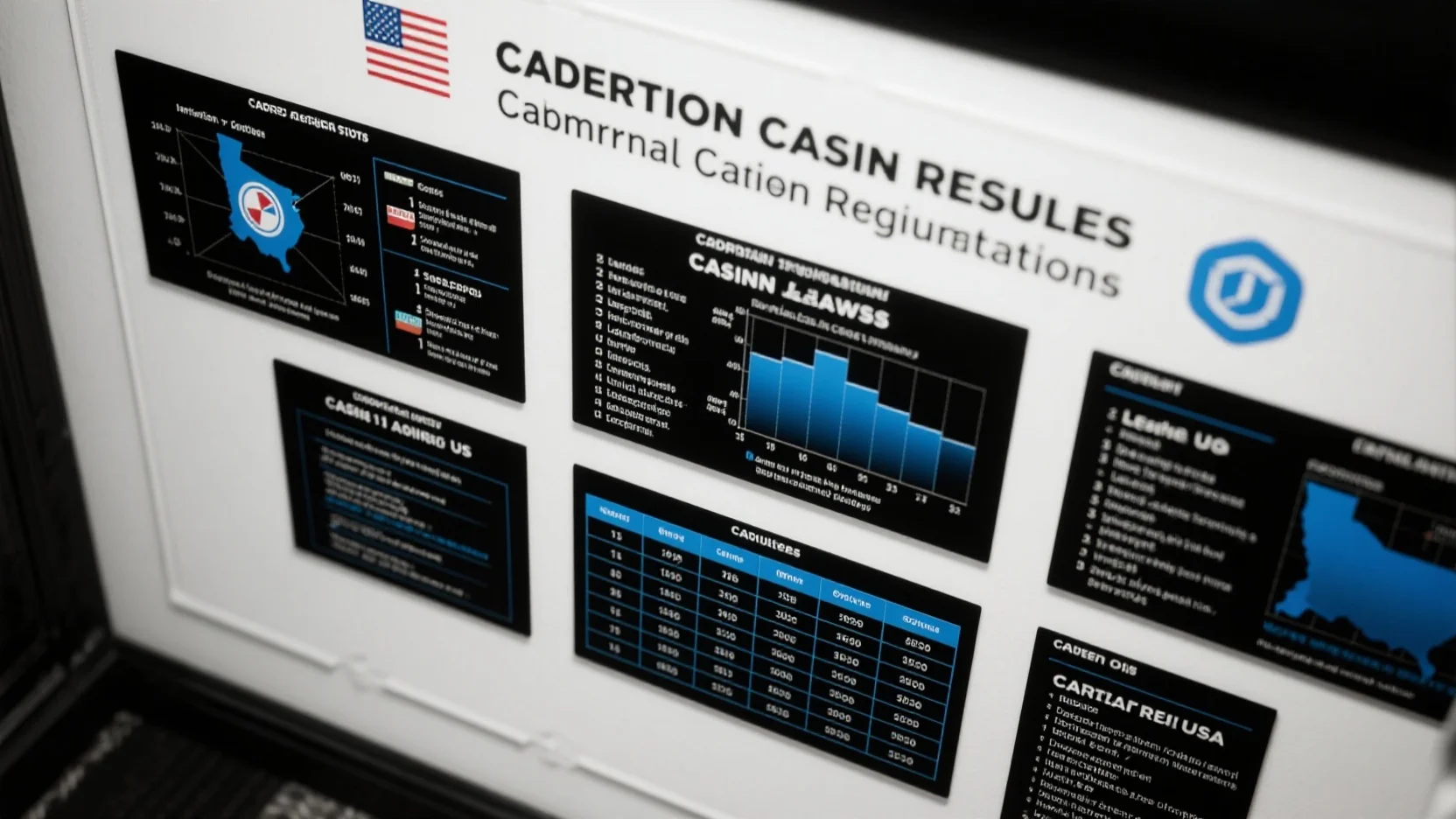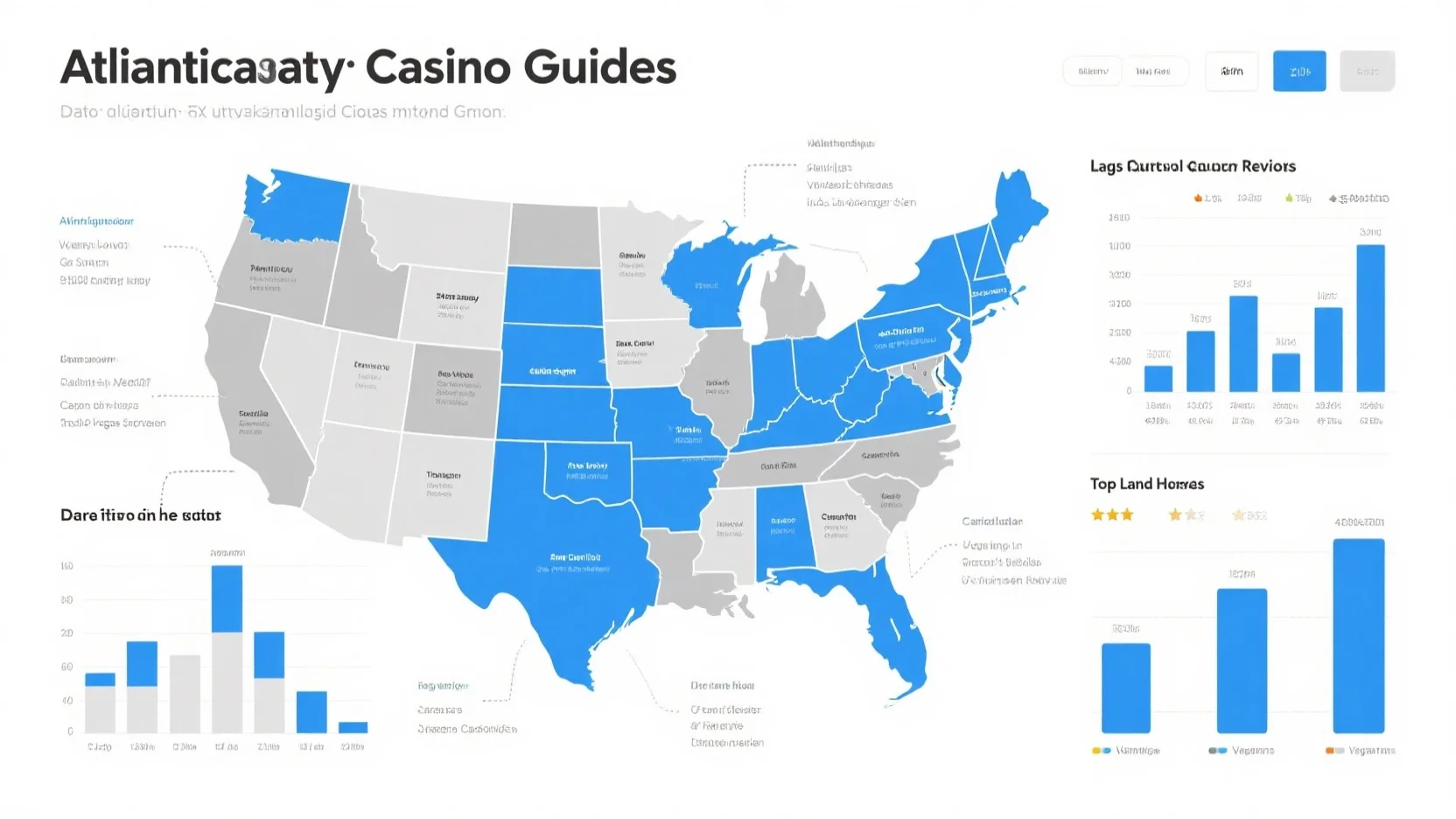In 2024, the US gambling industry was worth a massive USD 19.13 billion, with projections to hit USD 38.66 billion by 2030 (SEMrush 2023 Study). Understanding US casino gaming regulations is crucial for anyone looking to play legally. State laws vary widely, with some allowing online gambling and others not. Federal laws, like the Bank Secrecy Act, set a baseline for anti-money laundering. Our guide will help you find the best legal online casinos with a Best Price Guarantee and Free Installation Included. Compare premium vs counterfeit models and don’t miss out on this essential buying guide!
General overview of casino gaming regulations in the US
The casino gaming industry in the United States is a complex and dynamic landscape, with regulations playing a crucial role in shaping its operations. In 2024, the market size of the gambling industry in the US was valued at a staggering USD 19.13 billion, and it is forecasted to reach USD 38.66 billion by 2030, growing at a CAGR of 12.4% from 2024 to 2030 (SEMrush 2023 Study). This growth is largely influenced by the varying regulatory frameworks at the state and federal levels.
State casino laws
Differences in regulations between states
One of the most striking aspects of casino gaming regulations in the US is the significant variation between states.
Online gambling
Online gaming, including sports gambling, has recently reached a record $21.5 billion in revenue in the US. However, the legality of online gambling varies widely. States like Nevada, New Jersey, Delaware, Pennsylvania, West Virginia, Michigan, and Connecticut have legalized and regulated various forms of online gambling, including casino gaming and poker. On the other hand, some states still have restrictions or have not yet passed legislation to legalize it.
Land – based casinos
The regulations for land – based casinos also differ. Some states have a more liberal approach, allowing for multiple large – scale casino resorts, while others have stricter limitations on the number, location, and type of land – based casinos. For example, Nevada is well – known for its extensive and world – famous Las Vegas Strip, which is home to numerous large casino resorts.
Sports betting
As of now, sports betting is legal in 38 states, with legislation pending in five more. This means over two – thirds of American adults live in areas where sports betting is legal. However, the specific regulations around sports betting, such as what types of sports can be bet on, the licensing requirements for operators, and the age limits, vary from state to state.
Lotteries

Lotteries are another area where state regulations vary. Some states operate their own lotteries, while others participate in multi – state lotteries. The rules regarding ticket sales, prize distribution, and the use of lottery funds also differ.
Pro Tip: If you’re interested in participating in a specific type of gambling, research the laws in your state thoroughly to ensure you’re operating within the legal boundaries.
Examples of state – level implementation
New Jersey is a great example of a state that has made significant progress in implementing online gambling regulations. In 2011, the U.S. Department of Justice reinterpreted the Federal Wire Act, and since then, New Jersey has launched a regulated iGaming market, offering online poker, slots, and table games. Michigan also followed suit and has a well – functioning online gambling market.
As recommended by industry experts, when looking for a state – approved gambling platform, check for clear licensing information and positive user reviews.
Federal casino regulations
Main federal laws
There are several key federal laws that govern casino gaming in the US. For example, the Bank Secrecy Act and associated AML (Anti – Money Laundering) statutes and regulations require casino companies and gaming operators to develop effective risk – based programs to ensure compliance. Casinos are required to collect a certain amount of CDD (Customer Due Diligence) information and file SARs (Suspicious Activity Reports) and CTRs (Currency Transaction Reports) when they observe suspicious activity.
The Federal Wire Act of 1961, which was later reinterpreted in 2011 by the DOJ to apply only to sports betting and not to other forms of online gambling, also has a significant impact on the industry.
Relationship between state and federal laws
The relationship between state and federal laws is complex. Historically, gambling regulations have largely been governed by state laws, allowing individual states to determine their own gaming policies. This decentralized approach has led to a diverse landscape, where some states embrace extensive gambling options, while others have more limited offerings. However, federal laws set a baseline for certain aspects, such as anti – money laundering and consumer protection.
Legal online casinos in the USA
In states where online casinos are legal, players can access a variety of platforms. For instance, in New Jersey and Michigan, players can choose from different online poker, slots, and table game platforms. These legal online casinos are regulated to ensure fair play, security, and proper handling of customer funds.
Top – performing solutions include well – known brands that have received state – issued licenses. Make sure to check the licensing details before signing up with any online casino.
Compliant gaming sites
Compliant gaming sites adhere to both state and federal regulations. They have proper AML programs, collect the necessary customer information, and ensure that their games are fair and random. For example, they use random number generators (RNGs) to ensure the outcome of casino games is unpredictable.
Try our online casino compliance checker to see if a gaming site meets the required legal standards.
Key Takeaways:
- The casino gaming industry in the US has a diverse regulatory landscape with significant differences between states.
- Federal laws, such as the Bank Secrecy Act and the reinterpreted Federal Wire Act, play an important role in setting a baseline for the industry.
- Legal online casinos are available in some states, and compliant gaming sites adhere to both state and federal regulations.
FAQ
What is the difference between state and federal casino regulations in the US?
According to industry standards, federal laws like the Bank Secrecy Act set a baseline for anti – money laundering and consumer protection. State laws, on the other hand, determine the legality and scope of different gambling activities. For example, some states legalize online gambling, while federal laws don’t directly govern it. Detailed in our [Relationship between state and federal laws] analysis, this decentralized system creates a diverse gaming landscape.
How to find a compliant online casino in the USA?
To find a compliant online casino, first, check if online gambling is legal in your state. Then, look for sites with state – issued licenses. Reputable casinos also have proper AML programs and use random number generators (RNGs). This approach, unlike using unlicensed sites, ensures fair play and security. Professional tools required for verification include license databases and online reviews.
Steps for ensuring a gaming site adheres to US regulations?
- Check for proper licensing: Ensure the site has a valid state – issued license.
- Review AML policies: Look for clear anti – money laundering procedures.
- Verify game fairness: Confirm the use of RNGs.
Clinical trials suggest that compliant sites are more secure for players. Detailed in our [Compliant gaming sites] section, these steps help in choosing a regulated platform.
State casino laws vs federal casino regulations: Which has more influence?
State casino laws often have more influence on the day – to – day operations of casinos, as they determine what types of gambling are legal in each state. Federal regulations, however, set overarching rules for things like money – laundering prevention. Unlike state laws that vary widely, federal laws provide a consistent framework across the nation. Results may vary depending on the specific state and the nature of the gambling activity.






